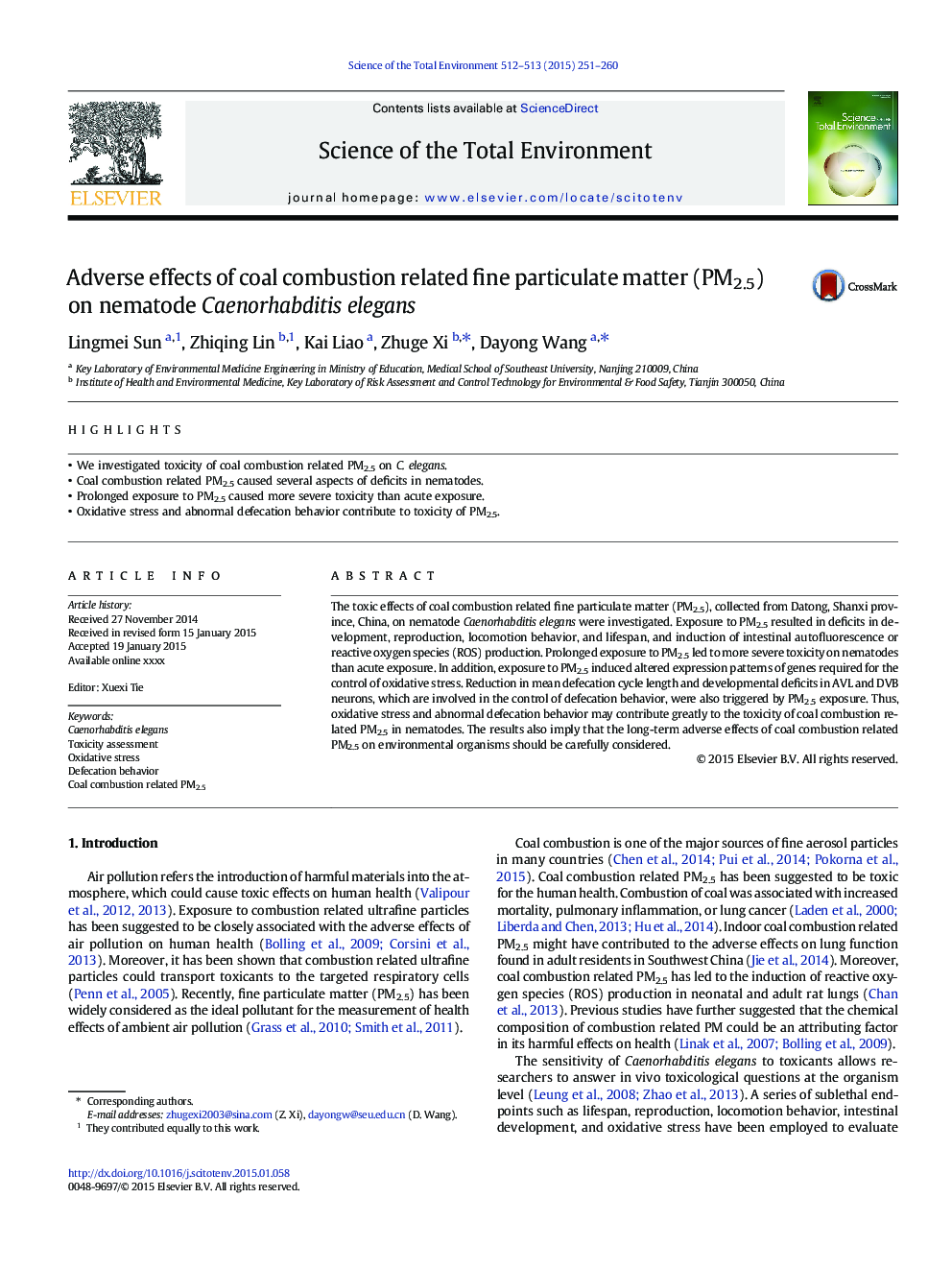| Article ID | Journal | Published Year | Pages | File Type |
|---|---|---|---|---|
| 6327191 | Science of The Total Environment | 2015 | 10 Pages |
Abstract
The toxic effects of coal combustion related fine particulate matter (PM2.5), collected from Datong, Shanxi province, China, on nematode Caenorhabditis elegans were investigated. Exposure to PM2.5 resulted in deficits in development, reproduction, locomotion behavior, and lifespan, and induction of intestinal autofluorescence or reactive oxygen species (ROS) production. Prolonged exposure to PM2.5 led to more severe toxicity on nematodes than acute exposure. In addition, exposure to PM2.5 induced altered expression patterns of genes required for the control of oxidative stress. Reduction in mean defecation cycle length and developmental deficits in AVL and DVB neurons, which are involved in the control of defecation behavior, were also triggered by PM2.5 exposure. Thus, oxidative stress and abnormal defecation behavior may contribute greatly to the toxicity of coal combustion related PM2.5 in nematodes. The results also imply that the long-term adverse effects of coal combustion related PM2.5 on environmental organisms should be carefully considered.
Related Topics
Life Sciences
Environmental Science
Environmental Chemistry
Authors
Lingmei Sun, Zhiqing Lin, Kai Liao, Zhuge Xi, Dayong Wang,
